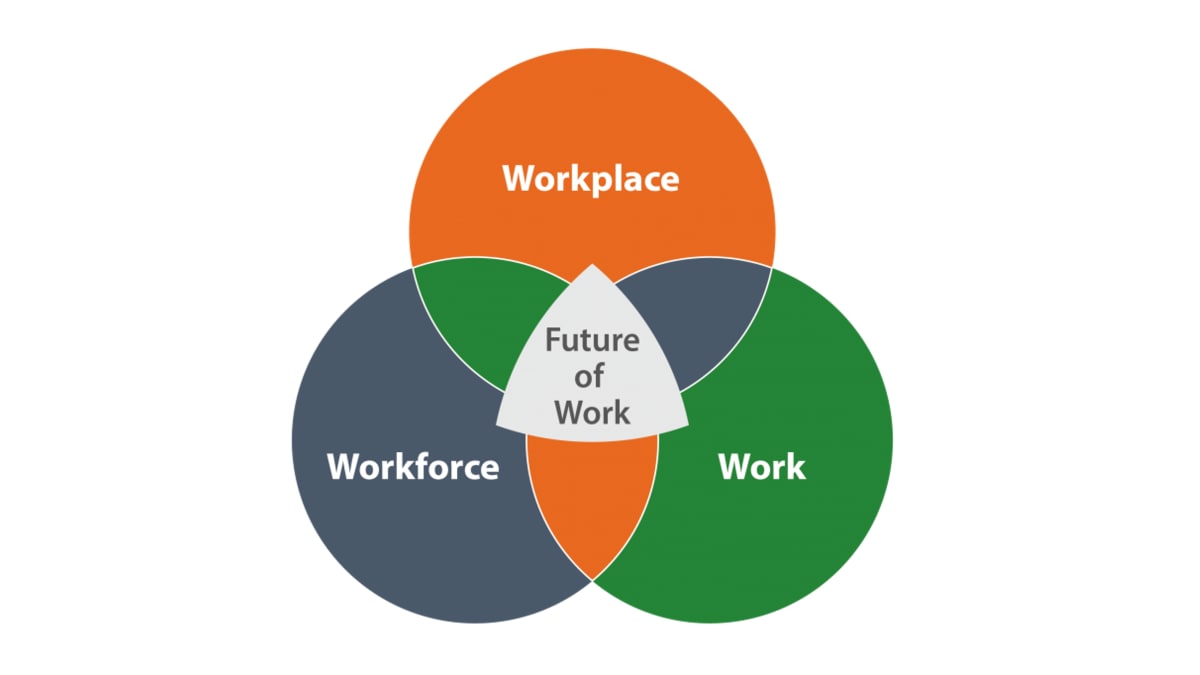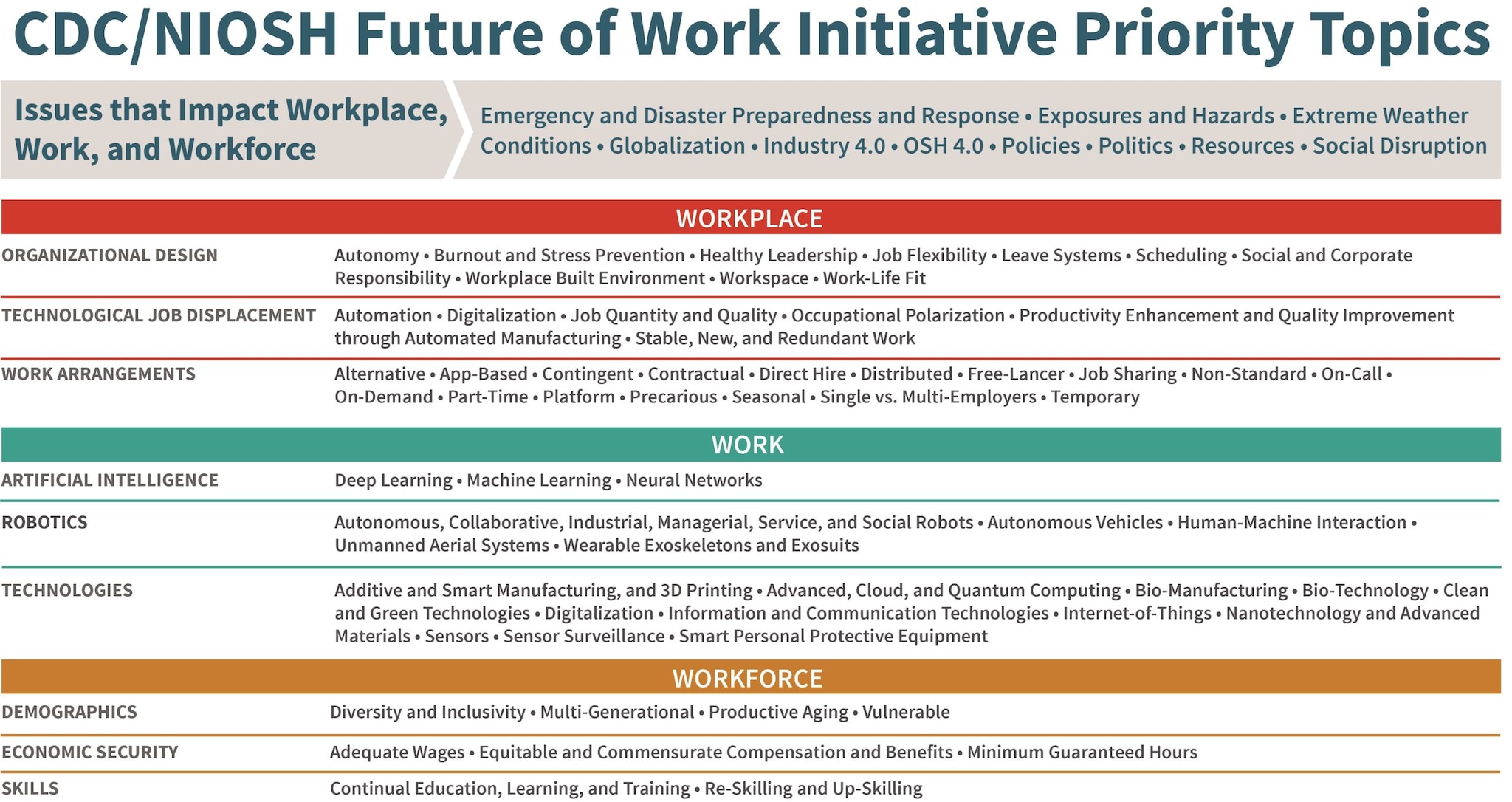At a glance
- Shifts in demographics, new technologies, and other global trends are causing rapid change in work, the workplace, and the workforce.
- NIOSH established the Future of Work Initiative to meet the challenges and opportunities that lie ahead.
- The Initiative serves as a cross-NIOSH effort to set priorities, coordinate activities, share information, and build information.

Overview
Today, the workplace, work, and workforce are changing more rapidly than ever before. New technologies, particularly in automation, robotics, information, and communication mean frequent change in work, and the workplace. Workers must adapt to the changing economic environment and demand for skills, even while affected by shifts in demographics and culture. These shifts in turn cause changes in work organization, and may require further new and responsive technology. All this occurs amid a complex, interconnected landscape of global trade and policies, prone to social, economic, or environmental disruption. The future of work heralds not only new and changing hazards for the nation's workers, but also opportunities for dramatic improvements.
In response, NIOSH launched the Future of Work Initiative. It seeks to identify new research solutions, practical approaches, and partnership opportunities to address the future of work for the nation. While applying Total Worker Health® principles, the Initiative encourages collaboration across a range of activities of organizational policies, programs, and practices. It is a collective effort of interdisciplinary research, and communication throughout NIOSH, other government agencies, and organizations.
Priorities
NIOSH has established future of work priority topics and sub-topics for the workplace, work, and workforce.

Research agenda
The NIOSH Future of Work Initiative Research Agenda builds on the priority topics. Outlining research-focused directions to grow the Initiative, it may inform practice, policy, and capacity-building activities. The agenda frames the most pressing workplace and work issues expected to impact the safety and health of tomorrow's workforce. It uses a comprehensive approach across jobs, occupations, and industries.
Resources
Webinar Series
Science blogs
The NIOSH Science Blog has short, easy to read articles on occupational safety and health topics. Check out NIOSH Science Blogs about Future of Work.
Journal articles
The foundational paper for the Future of Work Initiative suggests an integrated approach to address worker safety, health, and well-being. It also introduces priority topics and potential next steps.
See also the NIOSHTIC-2 database search results on Future of Work. NIOSHTIC-2 is a database of occupational safety and health publications funded in whole or in part by NIOSH.
